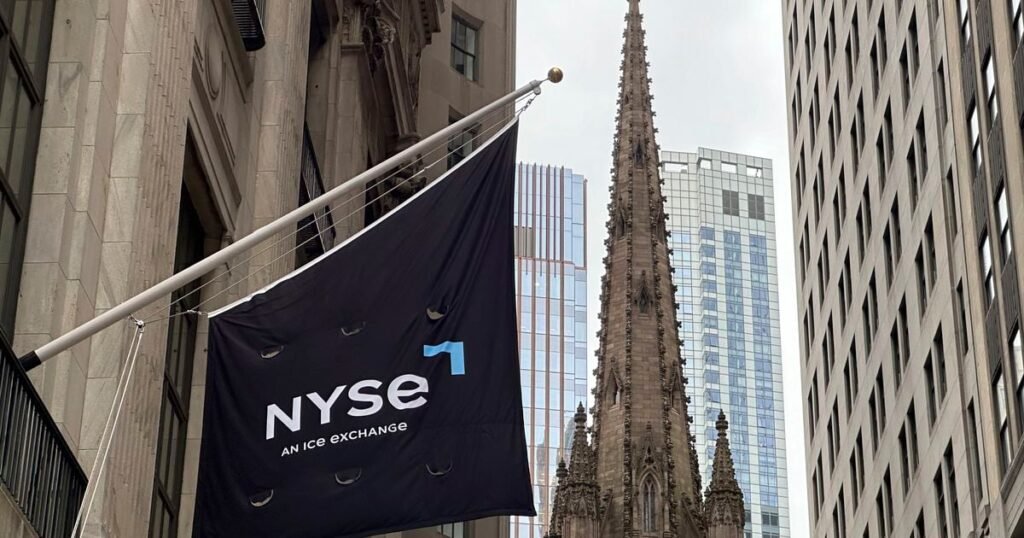South Korea’s KOSPI fell 1.2% to 2,689.42, while in Australia the S&P/ASX 200 lost 0.9% to 7,740.60.
Taiwan’s Taiex fell 0.2% after hitting a record high on Thursday.
Most U.S. stocks fell sharply on Thursday, the latest example of how good news for the economy can be bad news for Wall Street as a strong economic report raised the possibility that interest rates will remain painfully high. The weakness was broad-based, overshadowing another big profit report from market giant Nvidia.
The S&P 500 fell 0.7%, to 5,267.84, its biggest drop since April, the Dow Jones Industrial Average lost 1.5%, to 39,065.26 and the Nasdaq Composite lost 0.4%, to 16,736.03.
A better-than-expected report on the U.S. economy put pressure on Treasury yields, forcing traders to rethink bets on when the Federal Reserve might cut interest rates and provide relief to financial markets.
One report suggested U.S. business activity was growing at its fastest pace in more than two years, and S&P Global said preliminary data showed business growth was improving not just in the services sector but also in hard-hit manufacturing.
Meanwhile, a separate report showed the U.S. job market is holding up despite high interest rates: Fewer people filed for unemployment benefits last week than economists expected, suggesting layoffs are remaining low.
The Fed is trying to meet the difficult task of slowing the economy with high interest rates to bring inflation back to 2%, but not so slow that it forces a painful recession. To do so, the Fed is keeping its key interest rate at its highest in more than 20 years while Wall Street waits for monetary easing.
The stronger-than-expected economy has already led traders to cut their earlier, overly optimistic forecasts, but it could force the Fed to put off rate cuts for longer. Expectations remain high for at least one rate cut this year. But traders pulled back some of those bets following Thursday’s report.
The yield on the 10-year Treasury note, which helps set rates on mortgages and other loans, rose to 4.47% from 4.43% at Wednesday’s close. The yield on the two-year note, which better reflects expectations for Federal Reserve policy, rose to 4.93% from 4.87%.
The biggest faller in the S&P 500 index was Live Nation Entertainment, which plummeted 7.8% after the Department of Justice accused the company and its Ticketmaster business of illegally monopolizing live events in the country.
VF Corp., owner of The North Face, Vans and Timberland brands, saw its shares fall 2.9% after the company reported revenue that was lower than analysts had expected and a loss in its latest quarter.
Those chips more than offset a 9.3% surge from Nvidia, which released its latest jaw-dropping earnings report late Wednesday. The company’s latest quarterly revenue rose 262% year over year, and profits grew a staggering 629%. Demand for the company’s chips, which help train artificial intelligence systems, is strong.
Nvidia also increased its dividend after CEO Jensen Huang touted that “the next industrial revolution has begun.”
There are growing concerns that Wall Street’s enthusiasm about AI’s potential has created a bubble, driving up prices and over-inflated expectations, but Nvidia’s continued rapid growth has muted some of the criticism.
Meanwhile, in electronic trading on the New York Mercantile Exchange, benchmark U.S. crude futures rose 11 cents to $76.98 a barrel, after gaining 30 cents on Thursday.
Brent crude, the international standard, rose 16 cents to $81.52 a barrel.
The U.S. dollar rose to 157.05 yen from 156.96 yen. The euro fell to 1.813 dollars from 1.0817 dollars.
___
AP Business Writer Stan Cho contributed.

